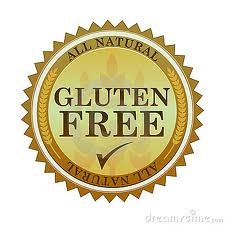
The Health Reporter – Gluten free diet
Primarily used to treat celiac (coeliac) disease, gluten-free diets are becoming pretty popular, to the point that supermarkets now have dedicated aisles for gluten-free products. But, is a gluten-free diet the right path for you to stay healthy?
First, what is gluten?
Gluten is the general name for the protein found in wheat, barley and rye, but also beer, cake, salad dressings, pizzas and so on. If you chose to follow a gluten-free diet, you may get confused between what you can and cannot eat at first. Here is a list of what’s allowed or not, in case you’re not too sure.
The good
Some people have medical conditions that require them to follow a gluten-free diet. Symptoms indicating gluten may be bad for you include constipation, diarrhoea gas, bloating, headache, trouble concentrating and fatigue, and can reveal conditions such as:
- celiac disease
- gluten intolerance
- autoimmune disease
For these people, a gluten-free diet is not only necessary but also very healthy, and most will admit that it makes them feel a lot better. Studies have also shown that some mental illness patients respond well to a gluten-free diet, in cases of seizures, schizophrenia and autism for instance.
Furthermore, even though gluten is a basic part of your nutrition, it is found in too many products nowadays, such as candy, crackers, gravy and potato chips, which makes it hard to avoid. It is therefore true that, without meaning to, we ingest too much gluten (10 to 40 g being the recommended daily amount), and lowering the intake can only be good for you.
The bad
First and foremost, people on a gluten-free diet usually eat lower levels of fibre, vitamins and minerals, and should always find complementary foods to compensate. If they don’t, the diet will take a serious toll on their health.
As the diet becomes trendier by the minute, we tend to see it as an easy change and believe we don’t need to meet with a dietician. Don’t make the same mistake: going gluten-free is a major lifestyle change, and you should always see a specialist to help you through it.
Another problem is that we trust gluten-free products to be healthier, but replacing your usual muffin with a gluten-free one will not help you lose weight. In fact, a gluten-free muffin may contain more calories.
So how can you be sure?
All in all, you should always see a doctor if you think you may be gluten intolerant, and avoid diagnosing yourself. Keep in mind that avoiding wheat and buying gluten-free products is not enough: the gluten-free diet encompasses many factors such as adapting your meals, eating products you may never have tried before and looking at every single label (even simple medication such as paracetamol can contain gluten!).
If what you are looking for is a healthier lifestyle, you could also focus on whole-grain products, which are excellent, avoid pastries and candy and start exercising. A gluten-free diet can be very good for you, but it isn’t the ultimate healthy experience.